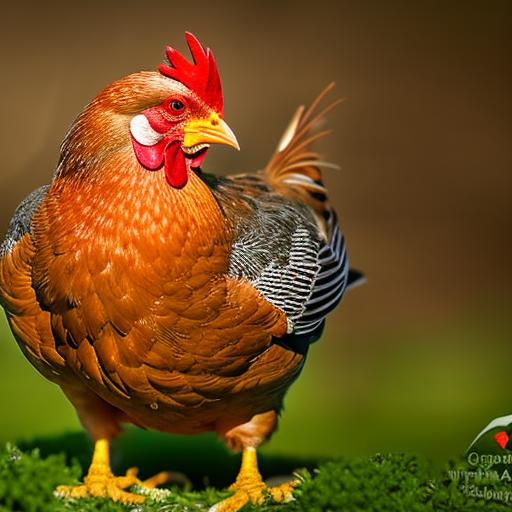Keeping chickens in your backyard has become an increasingly popular trend in recent years. More and more people are realizing the benefits of having their own flock of chickens, from the fresh eggs they provide to the natural pest control and fertilizer for their gardens. In this article, we will explore the various aspects of keeping chickens in your backyard, including understanding local regulations, choosing the right breed, building a chicken coop, feeding and protecting your flock, managing waste, harvesting eggs and meat, integrating chickens into a sustainable lifestyle, dispelling common myths and misconceptions, and more.
Key Takeaways
- Keeping chickens in your backyard can provide fresh eggs, natural pest control, and fertilizer for your garden.
- It’s important to research and understand local regulations and zoning laws before starting a backyard flock.
- Choosing the right breed for your needs depends on factors such as egg production, temperament, and climate adaptability.
- Building a chicken coop requires careful consideration of size, ventilation, and predator-proofing.
- Feeding your chickens a balanced diet of grains, protein, and fresh produce is important, while avoiding foods like avocado and chocolate that can be toxic to them.
The Benefits of Keeping Chickens in Your Backyard
One of the main benefits of keeping chickens in your backyard is the access to fresh eggs. There is nothing quite like collecting eggs from your own flock every morning. Not only are they delicious and nutritious, but they also have a richer flavor and brighter yolks compared to store-bought eggs. In addition to eggs, chickens also provide natural pest control for your garden. They love to eat insects, slugs, and other pests that can damage your plants. By allowing your chickens to roam freely in your yard, you can reduce the need for chemical pesticides.
Furthermore, chickens produce high-quality fertilizer for your garden. Their manure is rich in nitrogen, phosphorus, and potassium – essential nutrients for plant growth. By composting chicken manure and using it as fertilizer, you can improve the health and productivity of your garden soil. This not only saves money on commercial fertilizers but also reduces the need for synthetic chemicals that can harm the environment.
Understanding Local Regulations and Zoning Laws
Before getting chickens for your backyard, it is important to research and understand the local regulations and zoning laws in your area. Some cities or neighborhoods have specific rules regarding keeping chickens, such as the number of chickens allowed, coop size and placement, noise restrictions, and more. Violating these regulations can result in fines or even having to get rid of your chickens. To find this information, you can start by checking your city or county’s official website. Look for the section on animal control or zoning ordinances, as this is where you are likely to find the specific rules regarding chickens. You can also reach out to your local government office or animal control department for clarification.
Choosing the Right Breed for Your Needs
When it comes to choosing the right breed of chickens for your backyard, there are several factors to consider. First, think about your purpose for keeping chickens. Are you primarily interested in egg production, meat production, or both? If you are mainly interested in eggs, breeds such as Rhode Island Reds, Leghorns, and Australorps are known for their high egg production. If you are interested in meat production, breeds such as Cornish Cross and Freedom Rangers are popular choices.
Another factor to consider is the climate in your area. Some breeds are more cold-hardy, while others are better suited for hot climates. For example, the Buff Orpington is known for its cold tolerance, while the Mediterranean breeds like Leghorns and Minorcas do well in hot climates.
Additionally, consider the temperament and behavior of different breeds. Some breeds are more docile and friendly, making them suitable for families with children. Other breeds may be more flighty or aggressive, which may not be ideal if you have small children or neighbors in close proximity.
Building the Perfect Chicken Coop
Building a chicken coop is an essential part of keeping chickens in your backyard. The coop provides shelter and protection for your flock from predators and the elements. When building a chicken coop, there are several factors to consider.
First, determine the size of the coop based on the number of chickens you plan to keep. As a general rule of thumb, allow at least 4 square feet of floor space per chicken. This will ensure that they have enough room to move around comfortably. Additionally, provide at least 1 nest box for every 3-4 hens for egg-laying.
Next, choose the right materials for your coop. Common options include wood, metal, or plastic. Wood is a popular choice due to its durability and natural insulation properties. Make sure to use untreated wood to avoid exposing your chickens to harmful chemicals. Metal coops are more durable and predator-proof but can be more expensive. Plastic coops are lightweight and easy to clean but may not be as sturdy.
Design your coop with proper ventilation and lighting in mind. Good ventilation is crucial to prevent the buildup of ammonia from chicken waste and to regulate temperature and humidity levels. Install windows or vents that can be opened and closed as needed. Additionally, provide adequate lighting inside the coop. Chickens need about 14-16 hours of light per day to maintain egg production.
Lastly, ensure that your coop is secure from predators. Use sturdy wire mesh or hardware cloth to cover all openings, including windows, vents, and the bottom of the coop. Dig a trench around the perimeter of the coop and bury the wire mesh at least 12 inches deep to prevent predators from digging under.
Feeding Your Chickens: What to Provide and What to Avoid

Feeding your chickens a balanced diet is essential for their health and productivity. The main component of their diet should be a commercial feed specifically formulated for chickens. These feeds are nutritionally balanced and provide all the essential vitamins and minerals that chickens need.
In addition to commercial feed, you can supplement your chickens’ diet with kitchen scraps and garden waste. Chickens are omnivores and can eat a wide variety of foods, including fruits, vegetables, grains, and even meat scraps (excluding cooked bones). However, it is important to avoid feeding them certain foods that can be harmful to their health. These include chocolate, caffeine, avocado, onions, garlic, and raw potato peels.
It is also important to provide your chickens with access to fresh water at all times. Chickens need water to stay hydrated and to aid in digestion. Make sure to clean and refill their water containers regularly to prevent the buildup of bacteria.
Protecting Your Flock from Predators and Disease
Protecting your chickens from predators is crucial to their safety and well-being. Common predators include raccoons, foxes, coyotes, dogs, and even birds of prey. To protect your flock, make sure that your coop is secure and predator-proof. Use sturdy wire mesh or hardware cloth with small openings to cover all openings, including windows, vents, and the bottom of the coop. Install a secure latch on the coop door to prevent predators from opening it.
Additionally, consider using motion-activated lights or alarms to deter predators. These can startle and scare away potential threats. You can also use natural deterrents such as predator urine or hair around the perimeter of the coop.
In addition to predators, chickens are also susceptible to various diseases. Some common chicken diseases include respiratory infections, parasites, and viral infections. To prevent the spread of disease, practice good biosecurity measures. This includes keeping your coop clean and dry, quarantining new chickens before introducing them to your flock, and regularly checking for signs of illness or parasites.
Managing Waste and Maintaining a Clean Coop
Managing chicken waste is an important aspect of keeping chickens in your backyard. Chicken manure is a valuable source of nutrients for your garden but can also be a source of odor and flies if not managed properly.
To manage chicken waste, regularly clean out the coop and remove soiled bedding. Replace it with fresh bedding material such as straw or wood shavings. This will help absorb moisture and control odor. Additionally, consider using a deep litter method, where fresh bedding is added on top of the existing bedding to create a composting system. This can help break down the manure and reduce odor.
Composting chicken manure is a great way to turn waste into a valuable resource for your garden. Collect the manure and bedding material and add it to a compost pile or bin. Make sure to mix it with other organic materials such as leaves, grass clippings, and kitchen scraps to create a balanced compost. Allow the compost to decompose for several months before using it in your garden.
Harvesting Eggs and Meat from Your Chickens
Harvesting eggs from your chickens is one of the most rewarding aspects of keeping chickens in your backyard. Most hens start laying eggs around 5-6 months of age, although this can vary depending on the breed. To collect eggs, check the nest boxes daily and remove any eggs that have been laid. It is best to collect eggs frequently to prevent them from getting dirty or broken.
If you are interested in harvesting meat from your chickens, there are a few things to consider. First, determine the appropriate age and weight for processing. Meat chickens, also known as broilers, are typically processed between 8-12 weeks of age when they reach a desired weight. Heritage breeds or dual-purpose breeds can be processed at a later age, around 16-20 weeks.
When it comes to processing chickens, it is important to do so in a humane and respectful manner. There are various methods for slaughtering chickens, including using a sharp knife or using a mechanical device called a killing cone. Make sure to research and choose a method that you are comfortable with.
After processing, it is important to properly store and handle the meat to ensure its safety and quality. Chill the meat immediately after processing and store it in the refrigerator or freezer. If you are not comfortable processing chickens yourself, you can also consider taking them to a local butcher or poultry processing facility.
Integrating Chickens into Your Sustainable Lifestyle
Keeping chickens in your backyard can be a great way to integrate them into a sustainable lifestyle. Chickens provide a number of benefits that align with sustainable practices, such as reducing food waste, providing natural pest control, and producing high-quality fertilizer.
One way to incorporate chickens into a sustainable lifestyle is by using their manure as fertilizer for your garden. Chicken manure is rich in nitrogen, phosphorus, and potassium – essential nutrients for plant growth. By composting chicken manure and using it as fertilizer, you can improve the health and productivity of your garden soil. This reduces the need for synthetic fertilizers that can harm the environment.
Another way to integrate chickens into a sustainable lifestyle is by incorporating them into a permaculture system. Permaculture is a design approach that aims to create sustainable and self-sufficient ecosystems. Chickens can play a role in this system by providing pest control, fertilizing the soil, and even helping with weed management. For example, you can allow your chickens to free-range in your garden to eat insects and weeds, while also depositing manure to enrich the soil.
Common Myths and Misconceptions About Keeping Chickens
There are several common myths and misconceptions about keeping chickens in your backyard that need to be addressed. One of the most common myths is that chickens are noisy and smelly. While roosters can be noisy, hens are generally quiet and only make noise when they lay an egg or when they sense danger. As for the smell, proper coop management and regular cleaning can prevent odors from becoming an issue.
Another myth is that keeping chickens requires a lot of time and effort. While there is some initial setup involved, such as building a coop and getting the necessary supplies, chickens are relatively low-maintenance animals. They require daily feeding and watering, as well as regular cleaning of the coop, but this can be done in a short amount of time.
Lastly, some people believe that keeping chickens is only for those who live in rural areas or have large properties. However, many urban and suburban areas allow for backyard chickens, as long as certain regulations are followed. With the right setup and proper care, chickens can thrive in small spaces.
Keeping chickens in your backyard can be a rewarding and sustainable endeavor. From the fresh eggs they provide to the natural pest control and fertilizer for your garden, there are numerous benefits to having your own flock of chickens. By understanding local regulations, choosing the right breed, building a chicken coop, feeding and protecting your flock, managing waste, harvesting eggs and meat, integrating chickens into a sustainable lifestyle, and dispelling common myths and misconceptions, you can successfully keep chickens in your backyard. Consider getting chickens and enjoy the many benefits they bring to your life. For further information and resources on keeping chickens, consult local agricultural extension offices or poultry associations.
If you’re considering keeping chickens, you may also be interested in learning about the compatibility of guinea fowl and chickens. Poultry Wizard has an informative article on whether guinea fowl can live with chickens, which explores the benefits and challenges of keeping these two bird species together. To find out more about this topic, check out their article “Can Guinea Fowl Live with Chickens?”. Additionally, if you’re curious about the natural hatching process of chicken eggs, Poultry Wizard offers insights on how long it takes for chicken eggs to hatch naturally. To delve into this subject further, read their article “How Long for Chicken Eggs to Hatch Naturally?”. Lastly, if you’re considering keeping ducks alongside your chickens, Poultry Wizard provides valuable information on what to feed ducks. Discover more about duck nutrition by visiting their article “What Should You Feed Ducks?”.
FAQs
What are the benefits of keeping chickens?
Keeping chickens can provide a source of fresh eggs, natural pest control for your garden, and fertilizer for your plants. They can also be great pets and provide entertainment.
Do I need a lot of space to keep chickens?
No, you do not need a lot of space to keep chickens. A small backyard or even a balcony can be enough space for a few chickens. However, it is important to check with your local government for any zoning or permit requirements.
What do chickens eat?
Chickens eat a variety of foods including grains, vegetables, fruits, and insects. It is important to provide them with a balanced diet and access to clean water.
Do chickens require a lot of maintenance?
Chickens do require some maintenance such as cleaning their coop, providing fresh food and water, and monitoring their health. However, they are relatively low maintenance compared to other pets.
Are there any health risks associated with keeping chickens?
There are some health risks associated with keeping chickens such as salmonella and avian influenza. It is important to practice good hygiene and follow proper handling procedures when dealing with chickens and their eggs.
Can I keep chickens in an urban area?
Yes, you can keep chickens in an urban area. However, it is important to check with your local government for any zoning or permit requirements. Some cities may have restrictions on the number of chickens you can keep or require a certain distance between your coop and neighboring properties.
Meet Walter, the feathered-friend fanatic of Florida! Nestled in the sunshine state, Walter struts through life with his feathered companions, clucking his way to happiness. With a coop that’s fancier than a five-star hotel, he’s the Don Juan of the chicken world. When he’s not teaching his hens to do the cha-cha, you’ll find him in a heated debate with his prized rooster, Sir Clucks-a-Lot. Walter’s poultry passion is no yolk; he’s the sunny-side-up guy you never knew you needed in your flock of friends!







